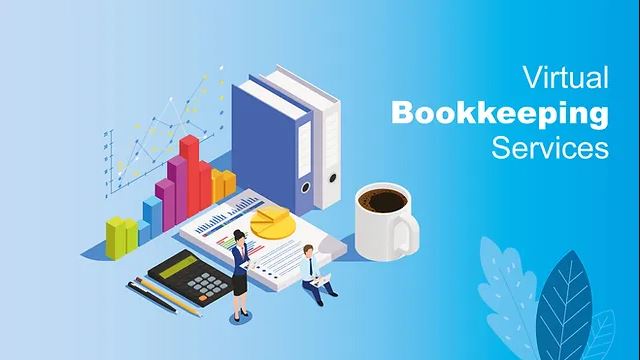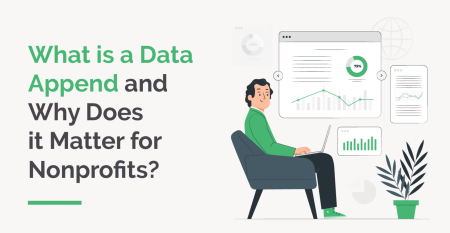Virtual accounting and bookkeeping services have completely changed how organizations handle their cash. Unlike conventional internal approaches, these digital options utilize cloud-based software to provide several benefits. These technologies assist companies in optimizing financial operations and making data-driven decisions by being affordable, easily accessible, providing real-time updates, and having improved security. This article explores the advantages of virtual bookkeeping and accounting, enabling firms to take advantage of technological improvements, boost productivity, and maintain competitiveness in today’s fast-paced market.
What are Virtual Bookkeeping and Accounting Services?
Online tools and cloud-based software are used to remotely monitor financial transactions and data for organizations as part of virtual bookkeeping and accounting services. Virtual services provide real-time access to financial data, collaborative tools, and automated processes instead of conventional internal accounting procedures. Businesses looking for excellent financial administration without the need for actual office space can use these solutions, which are affordable, safe, and scalable.
What are the Benefits of Virtual Bookkeeping and Accounting Solutions?
Learn about the many advantages of using virtual bookkeeping and accounting solutions for your company:
Cost-Effectiveness
By implementing cloud-based technologies, businesses can drastically lower overhead costs associated with maintaining physical offices and infrastructure. Companies also save on payroll costs by not having on-site bookkeepers. Additionally, these virtual solutions frequently include subscription-based pricing models, enabling businesses to pay only for the services they use. Companies can more effectively manage resources, improving profitability and giving them a competitive edge by streamlining financial operations and cutting out wasteful spending.
Integration with Business Systems
Integrating with business systems is a crucial benefit of online bookkeeping and accounting services. These platforms connect seamlessly with other essential business tools and software, such as enterprise resource planning (ERP) and customer relationship management (CRM) systems. This improved data flow improves productivity overall, lessens the need for manual data entry, and reduces the possibility of errors, resulting in a linked and integrated financial management ecosystem within the company.
Accessibility and Flexibility
Businesses can access their financial data at any time, from any location with an internet connection, with data saved in the cloud. Even though they are physically separated, team members and accountants can efficiently communicate thanks to this remote access. It is simpler to manage finances and react quickly to changes thanks to the flexibility of virtual solutions, which enables organizations to adapt to dynamic work settings, including remote or hybrid setups. This accessibility encourages fluid communication and raises the organization’s overall productivity.
Enhanced Security and Data Protection
Advanced encryption techniques and robust security measures are used by cloud-based platforms to protect financial records from hacker threats and unauthorized access. Redundancy features and routine data backups guarantee data integrity and prompt recovery in unforeseen circumstances. Businesses may safeguard sensitive financial data, reduce the risk of data loss, and adhere to industry-specific requirements by entrusting data to reliable cloud service providers. It will eventually foster customer and stakeholder confidence.
Scalability and Growth Potential
The primary advantages of virtual bookkeeping and accounting solutions are scalability and development potential. These platforms are flexible enough to accommodate rising transaction volumes and expanding financial needs as business needs change. Virtual solutions free enterprises from physical infrastructure constraints and enable uninterrupted corporate growth. By ensuring that the financial management system scales effectively with the company, access to sophisticated features and capabilities supports long-term success and growth.
Time-Saving and Efficiency
Automating repetitive processes and improved workflows reduces finance teams’ manual effort, allowing them to concentrate on more strategic and value-added activities. Decision-making procedures are accelerated by real-time updates and data accessibility. Businesses can function more productively, meet their financial objectives more successfully, and run more efficiently by optimizing financial operations and removing time-consuming procedures.
Real-Time Updates and Data Accuracy
Virtual bookkeeping and accounting solutions have much to offer, including accurate data and real-time updates. Financial data is automatically synchronized and updated in real-time with cloud-based systems, giving firms rapid access to the most recent information. Virtual bookkeeping services can help you improve data accuracy by lowering the possibility of errors and discrepancies, which frequently occur in manual processes. It empowers organizations to make educated decisions and maintain a clear and accurate financial health perspective.
Conclusion
In conclusion, virtual bookkeeping and accounting systems provide numerous benefits that enable organizations to revolutionize their financial management procedures. Using virtual solutions helps firms make better decisions, encourage growth, and remain ahead of the competition by streamlining financial operations and freeing up essential resources. Accept the potential of virtual solutions to ensure your financial future is prosperous and secure.














